A military family with two Army parents, and a group of five Pacific islanders who hate weapons and war, spent a week together at Fort Stewart, Ga., and became fast friends and extended family in the process.
They came together during a five-part series on the Travel Channel called "Meet the Natives: USA." The show, which first aired in December and is still available online at <a href="http://www.travelchannel.com">www.travelchannel.com</a>, follows five Vanuatu tribesmen from the remote South Pacific island of Tanna, and their quest to understand American culture and spread a message of peace.
During their stay at Fort Stewart, Staff Sgt. Steve Shepard, Sgt. Tara Shepard and their three children, helped the ambassadors experience a training simulator, physical training, the post museum, a deployment homecoming, shopping at the post exchange and military-style haircuts.
"The family was fantastic and they gave us permission to shoot there. The timing was right and everything just came together. We're thrilled with what we captured there," said the show's executive producer, Charlie Parsons.
One of the first stops on Fort Stewart was the training simulator to practice shooting turkeys (or large chickens to the islanders), a strange and unsettling experience for the tribesmen, whose culture had given up weapons in "the time of their grandfathers."
"These kinds of games will lead them to a war," observed Chief Mangau, with the simple common sense the tribesmen portrayed throughout the trip.
"They really did not like messing with weapons; they were on a mission of peace," Shepard, who is back in Iraq with 1st Battalion, 64th Armor Regiment, 3rd Infantry Division, said. "I tried to express the importance of wars and why we fight them. The Army is needed like rules are needed. Without either, this world would be in chaos."
Like a good noncommissioned officer, "I had to put them at ease and let them know, 'Nothing's going to happen to you while you're under my watch,'" Shepard explained.
While the islanders may have been less than impressed by the weapons, and their message of peace and love may not have turned 3rd Inf. Div. Soldiers into pacifists, they did change the Shepard family forever. From the way the islanders stuck together, to how they interacted with the Shepard children, to the hugs they gave, they touched both husband and wife with their constant love, support and generosity of spirit, both Shepards said in the "Reflections" episode.
"Maybe we should do more hugging," Tara told her husband during the show, inspired by the example of Kuai, "The Happy Man," who constantly brightened her day with hugs.
"I think their message got across to the families that they visited, because it was not so much in what they said, it was in what they did, and what they did, is they just showed love. You can say 'I love you' all day long...but yet you go out there and do things that (aren't) loveable," said Shepard.
"(They) showed me you don't have to have your guard up," he added. "Everyone's not going to come at you wrong. That, to me, is most important, and I think that would have helped our culture in America, if we just looked out for each other more."
As for their children, oldest son Ryan brought the five tribesmen to school for the "coolest and first" show-and-tell of his life, where the men patiently answered questions like "Do you eat breakfast'" and "Do you have wild animals in your culture'"
"I really miss them and I hope-wish they would come back soon," Ryan said wistfully in "Reflections." His parents agreed, explaining that the tribesmen went from strangers to family members in one short week.
"We felt like a part of our family had left with them," Shepard said in "Reflections." "It was amazing how we got attached to them."
Throughout their journey-with stops in California, Illinois, Montana and New York City, in addition to Fort Stewart-the tribesmen found that Americans are full of love and generosity, and that they had more in common than they first realized.
"Before we left, we had heard there was a lot of fighting in America, but on our journey, I discovered this was not true," said Chief Mangau.
He and the other islanders realized that Soldiers aren't just Soldiers. They do more than make war and fire guns. They are also parents and spouses, with other hobbies and interests, who miss each other when separated, something that truly hit home for the men when the Shepards took them to a homecoming ceremony. Seeing the tears, laughter and excitement of Army families, they were reminded how much they missed their own families.
In both Shepard and Parsons' favorite scene, Shepard gave the tribesmen dog tags, and Maj. Gen. Tony Cucolo, commander of the 3rd Inf. Div., awarded the World War II and Asiatic-Pacific Campaign medals to Mangau, in honor of his father's assistance against the Japanese during the war. Mangau and his fellow ambassadors reciprocated with a traditional tribal dance.
"It was very heartfelt, and for the chief to almost cry was priceless," wrote Shepard. "It was like closing a chapter in his life. I really enjoyed their tribal dance; the Soldiers participated and the evening was very delightful."
"It was very symbolic, very powerful for them and the viewer," added Parsons. "I then loved the part when they got home and Chief Mangau presented the medals to his father, the supreme chief, who I'm sad to report has passed away in the meantime. But that moment was-I just got a shiver thinking about it...to have his son return and put these medals around his neck and tell him the story-the chief was so proud."
While in the states, they had the opportunity to meet a World War II veteran who served on an island near their own, and they even met former Secretary of State and retired Army Gen. Colin Powell, a "great chief" of the land. They, and the Shepards, had the experience of a lifetime, as well as the memories of how another culture helped them better understand their own, something Parsons hopes viewers see as well.
"I hope viewers take away a little bit of that looking in the mirror thing," he said. "We made a conscious effort not to cross the line where we get preachy.... We always tried to keep it in the perspective of the ambassadors. To me, their basic message was 'everyone lives differently.... We need to work together to make the world a better place. We're not judging you, we're just asking you. We see these smokestacks in Peoria, these factory chimneys and, and we don't think that's good. It's hurting the environment.' They never try to make you feel bad about it, just shine that mirror on you, and people see they're right."
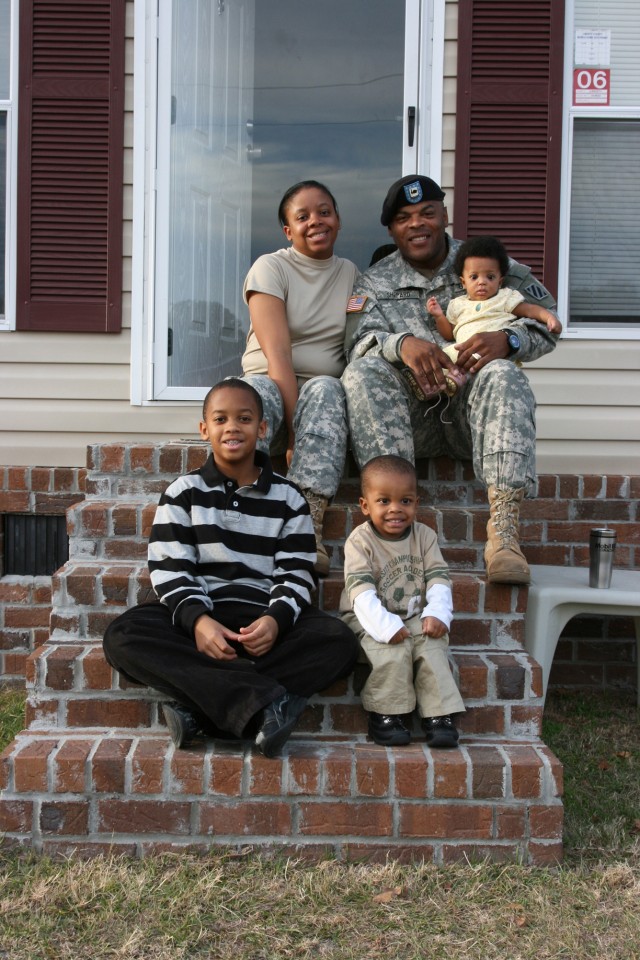
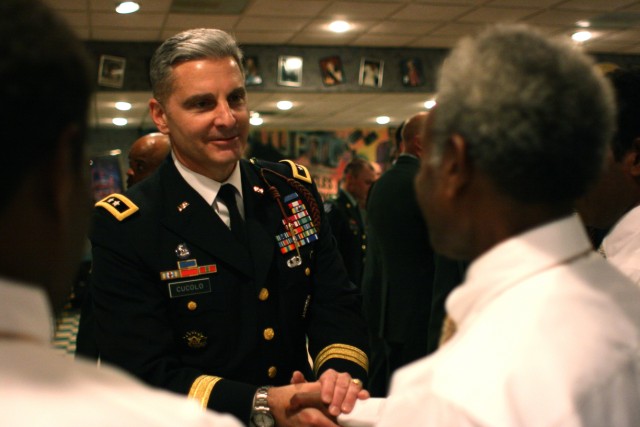
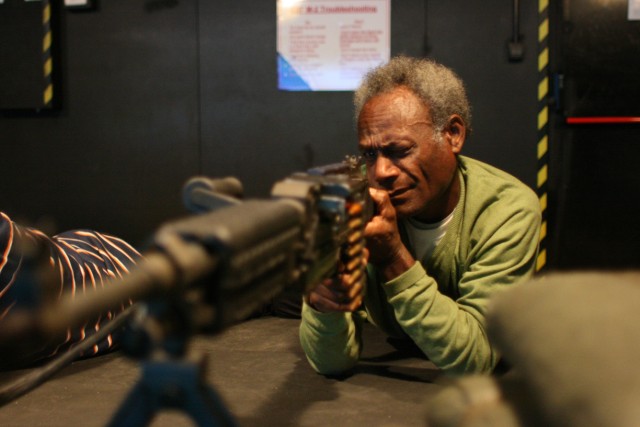
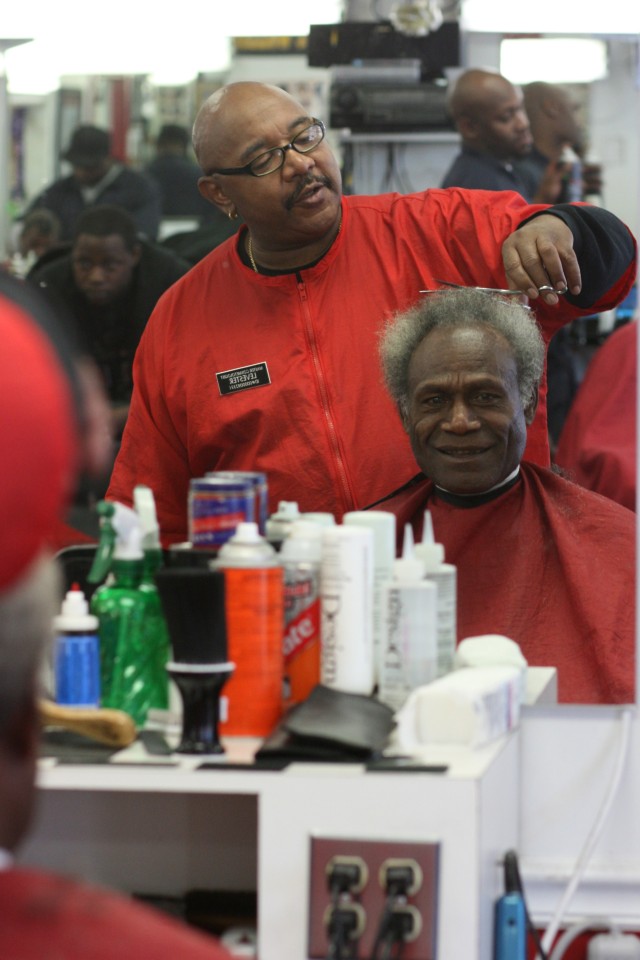
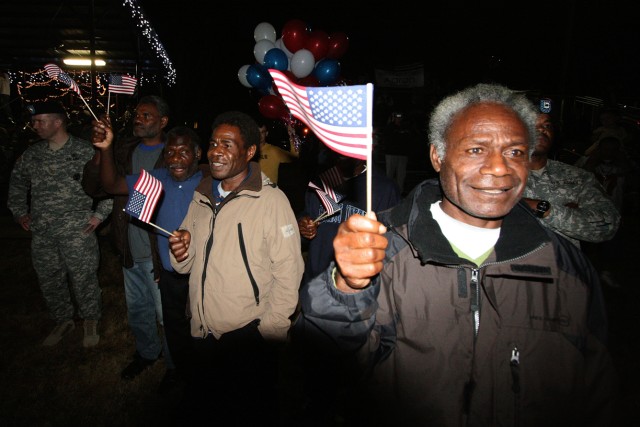
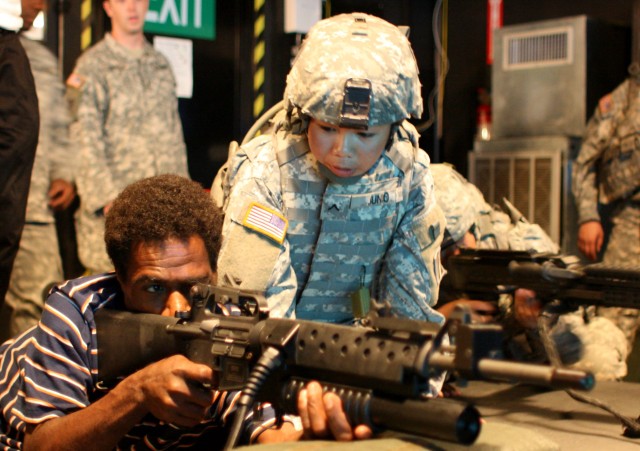
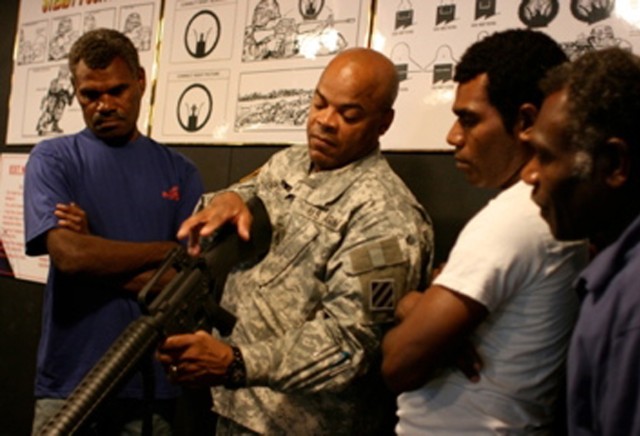
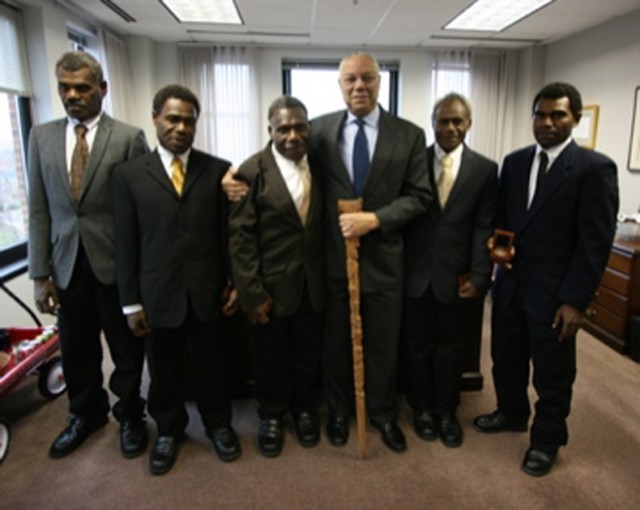
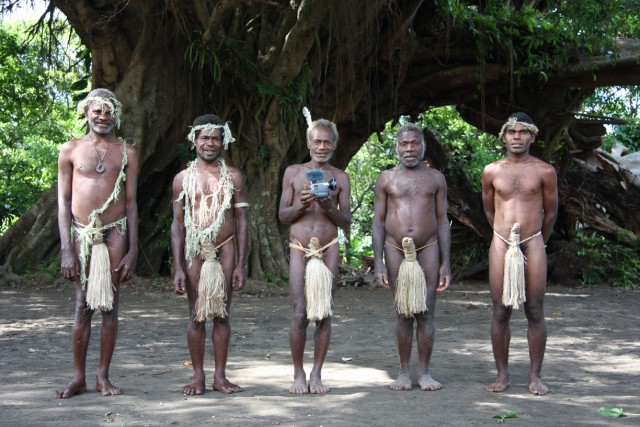
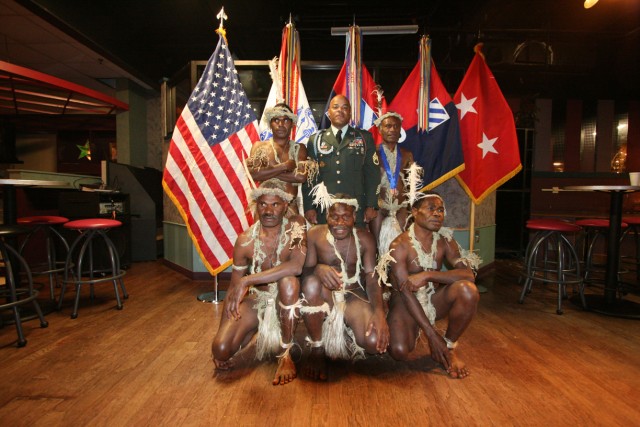
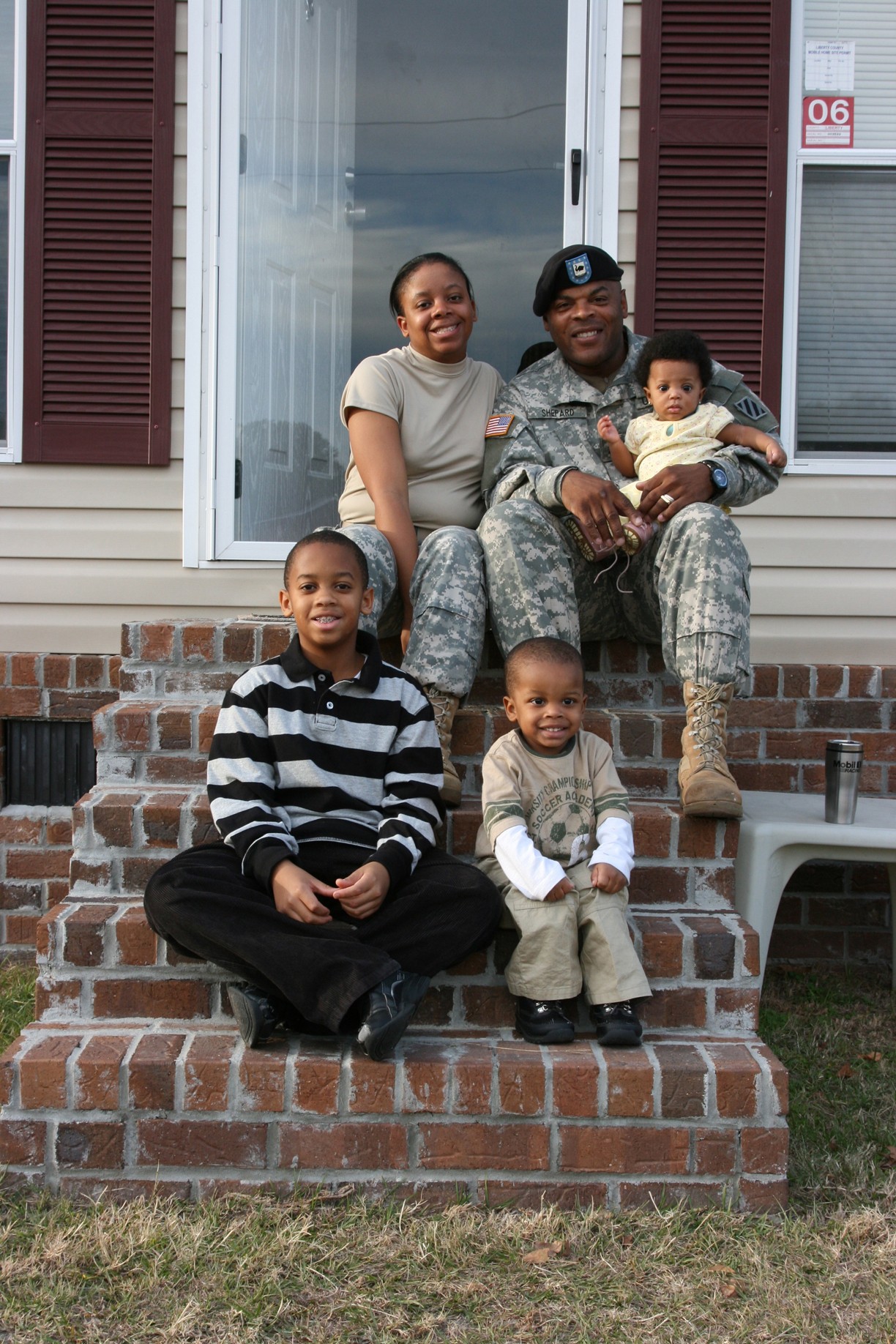
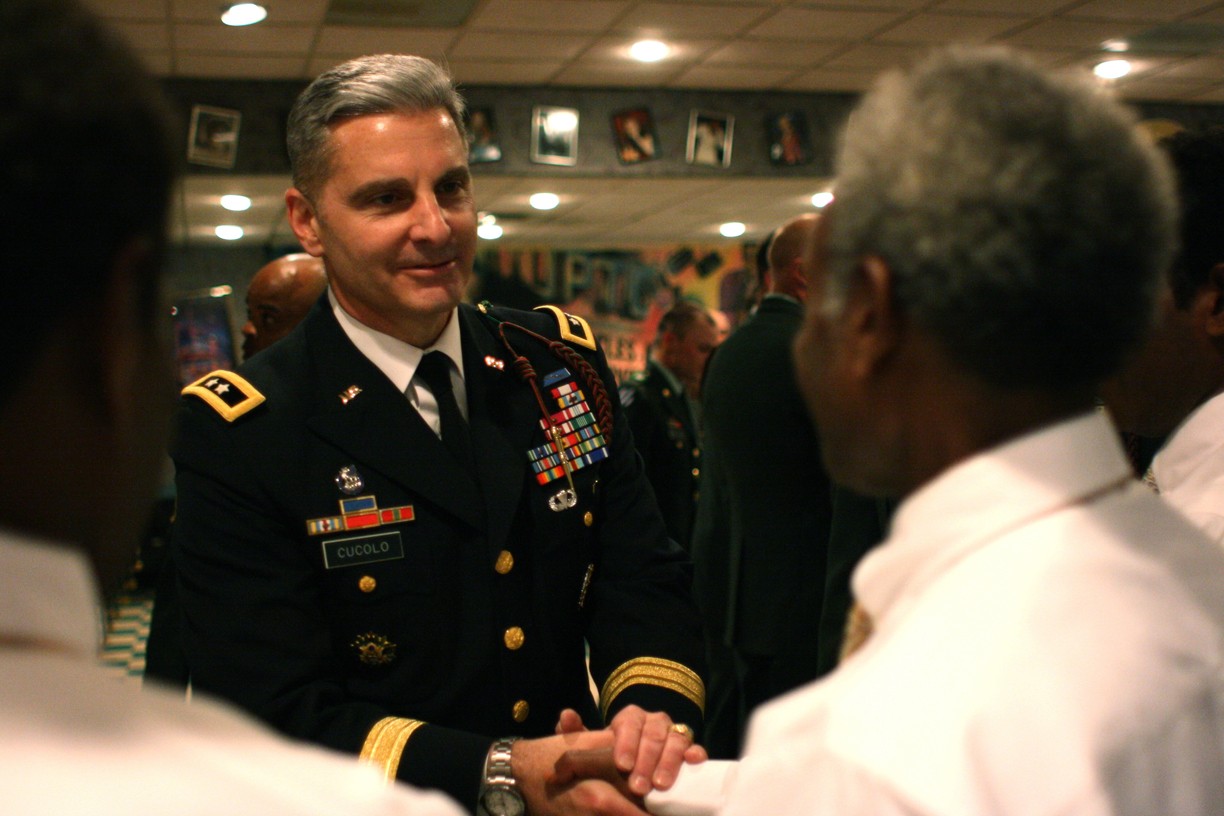
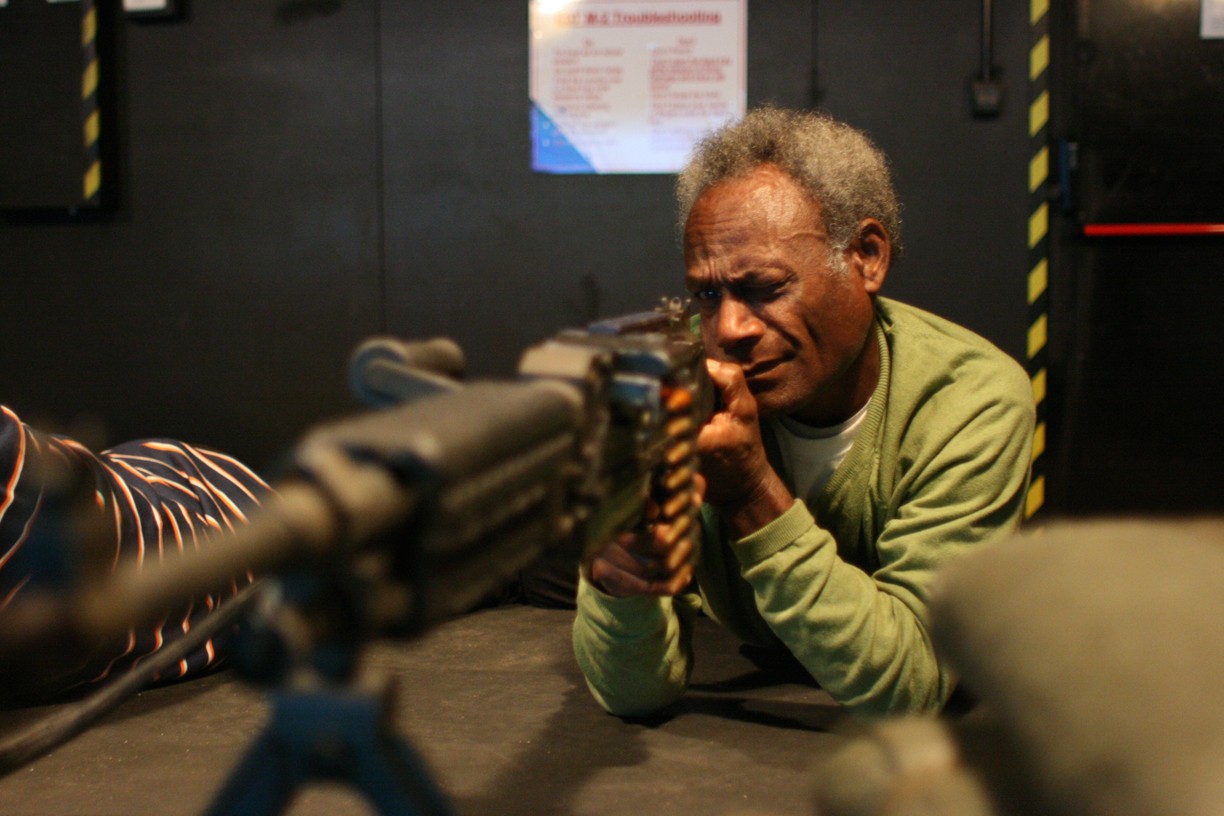
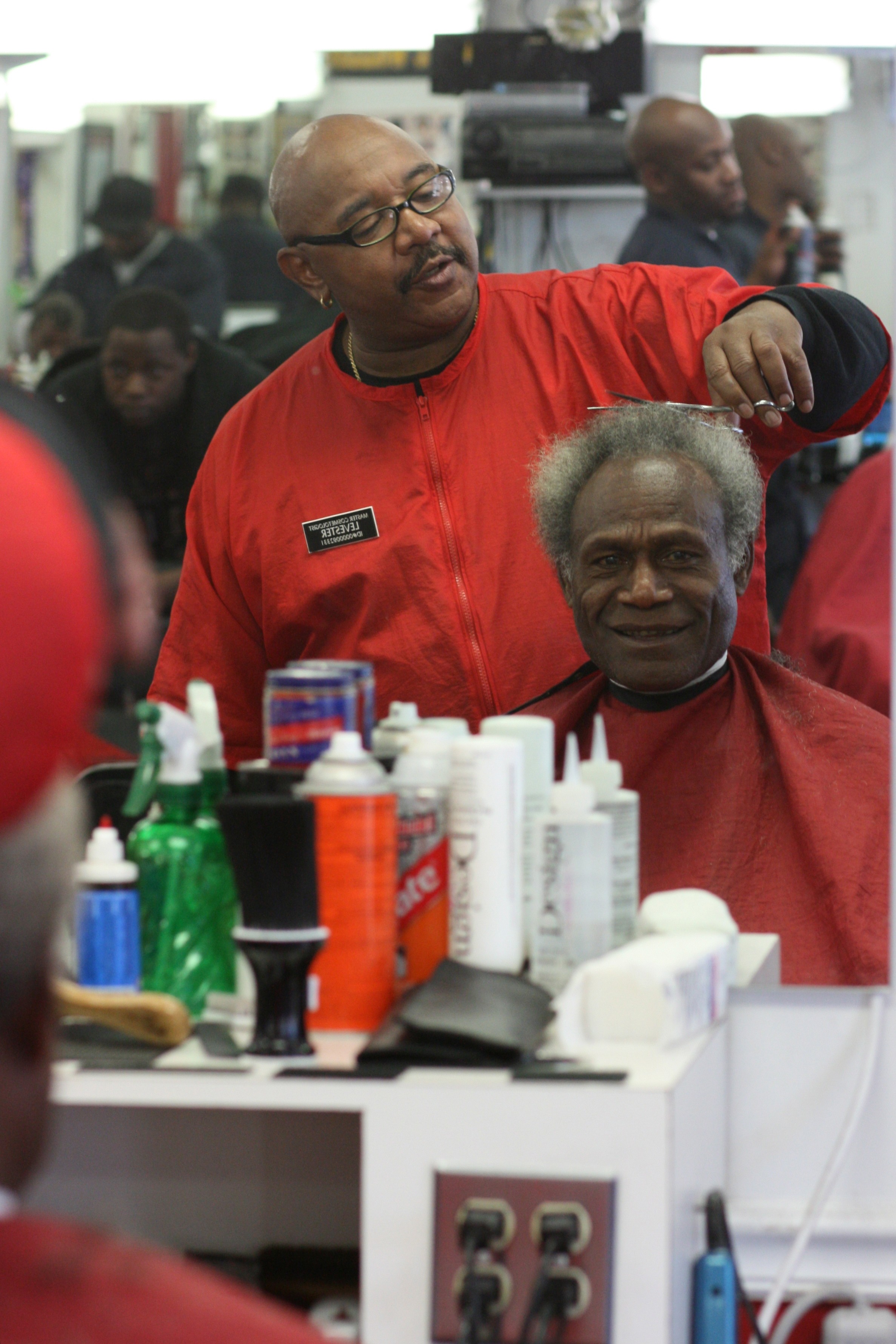
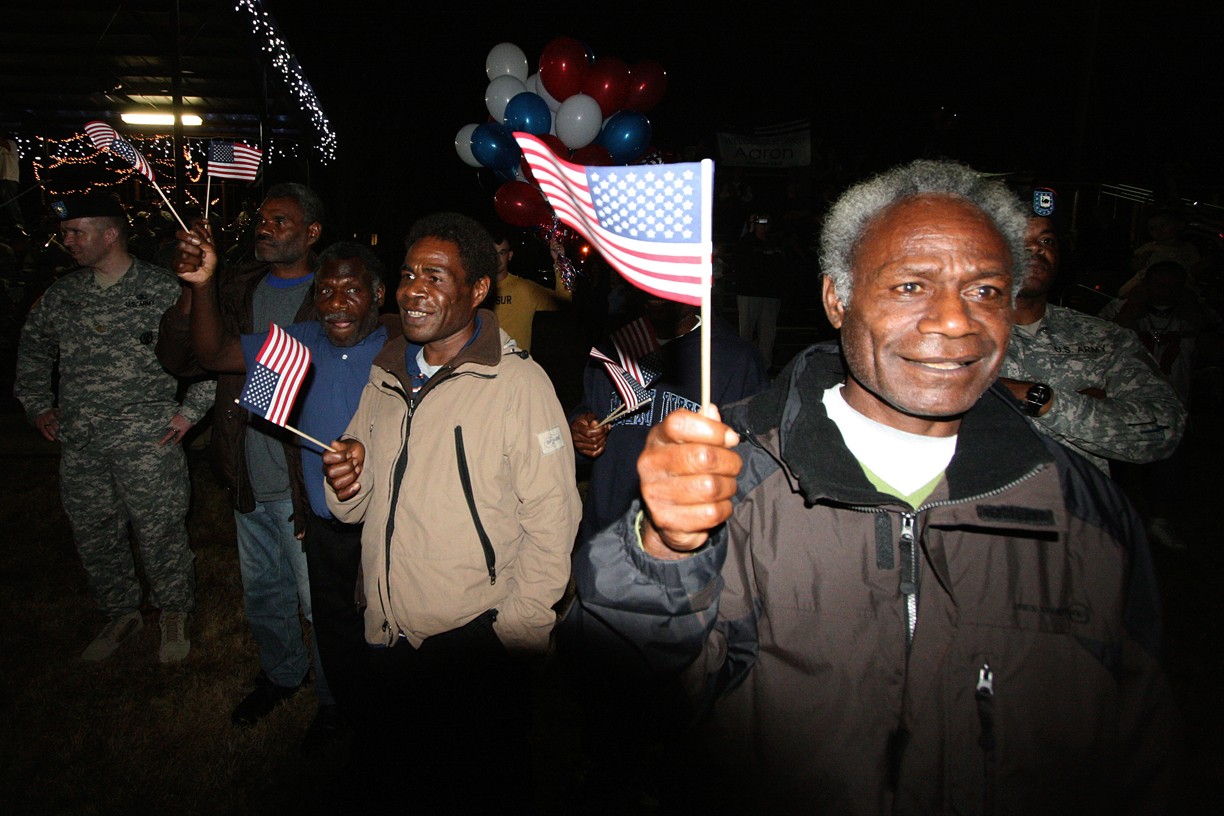
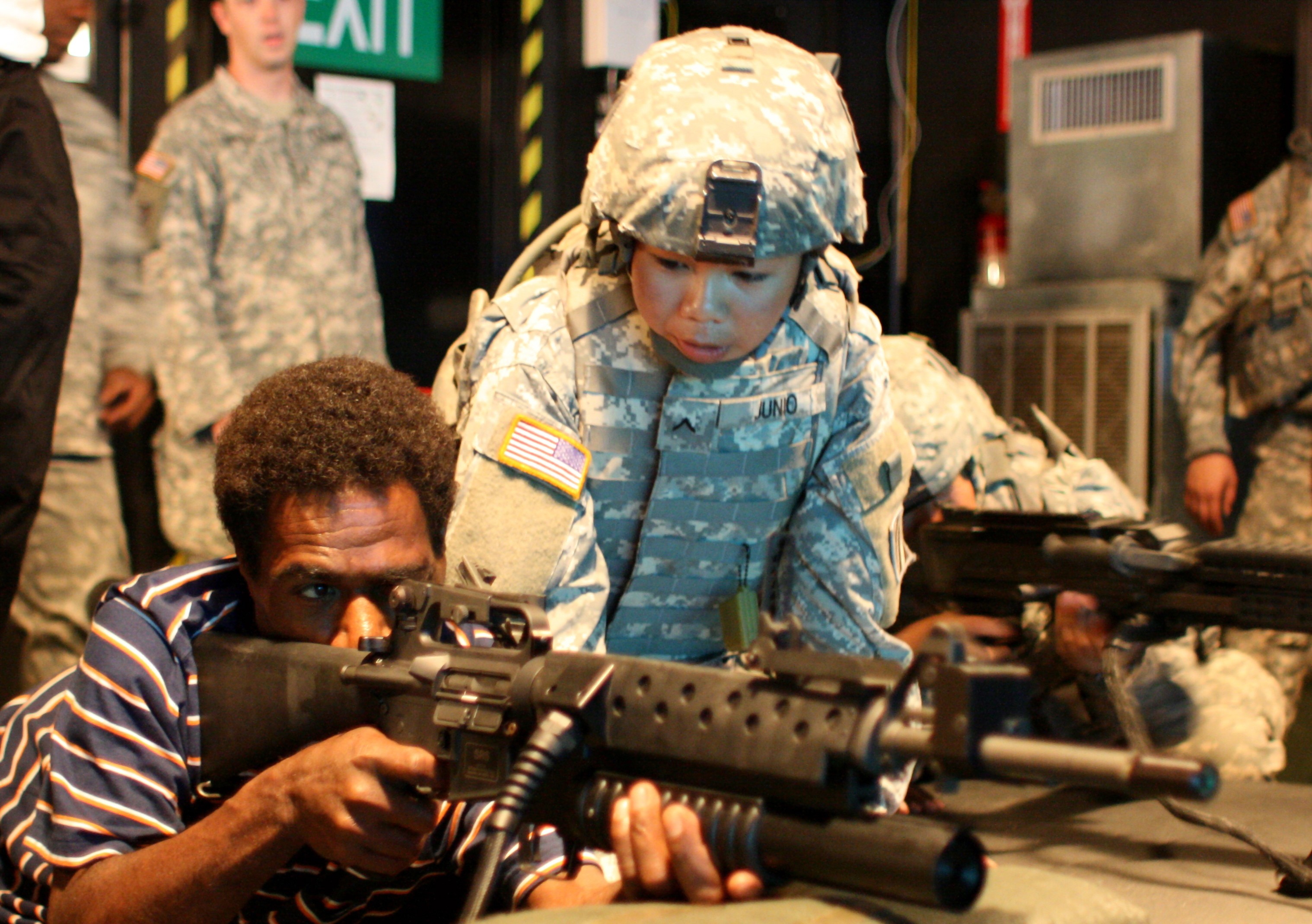
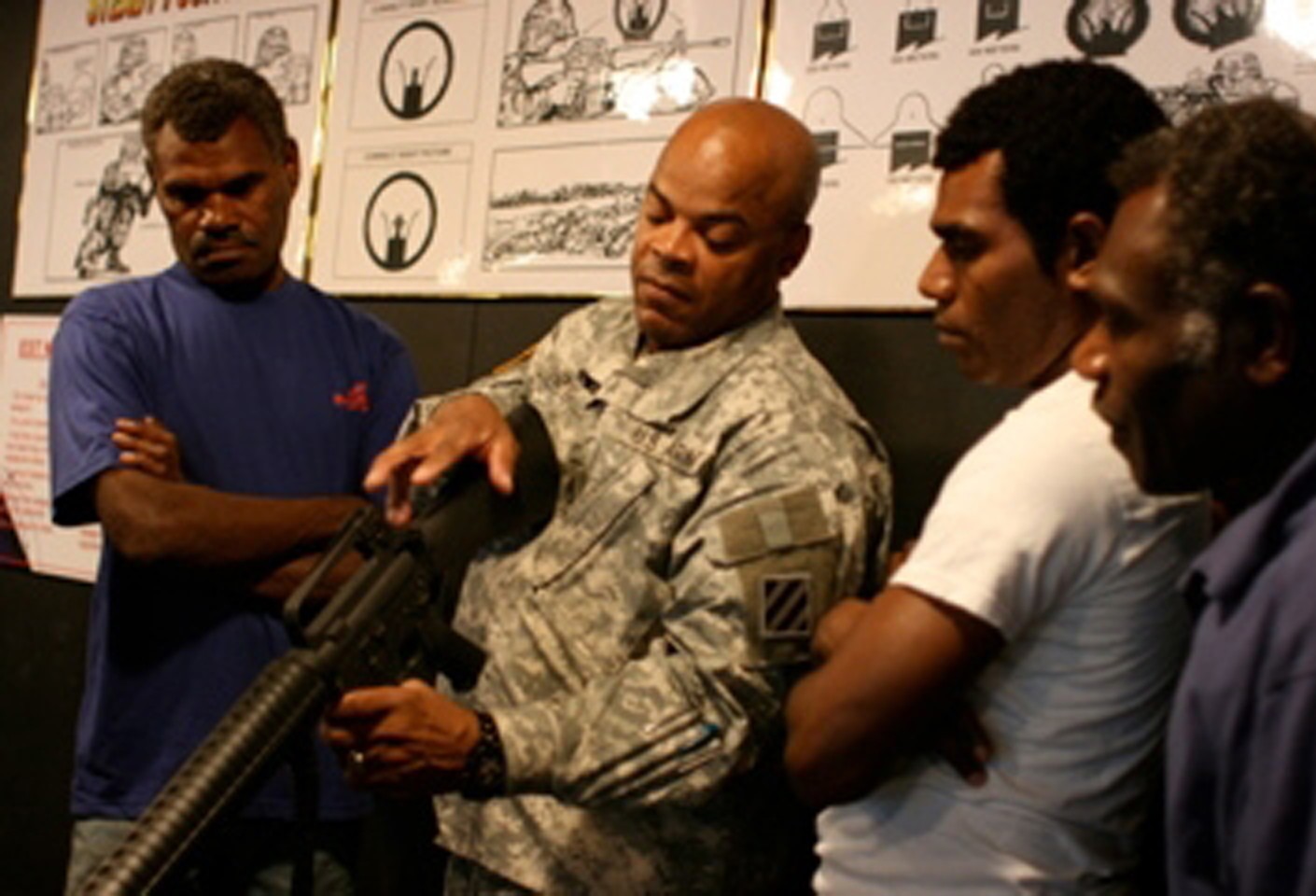
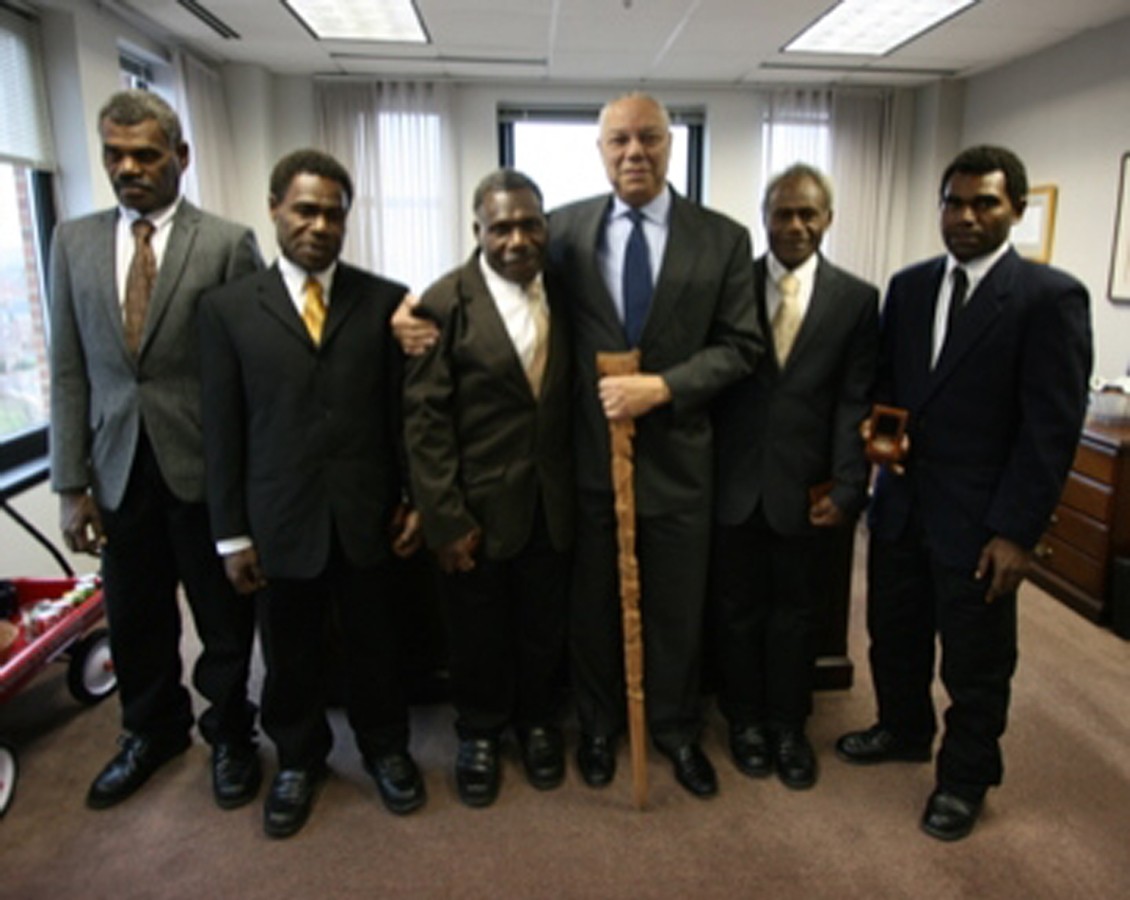
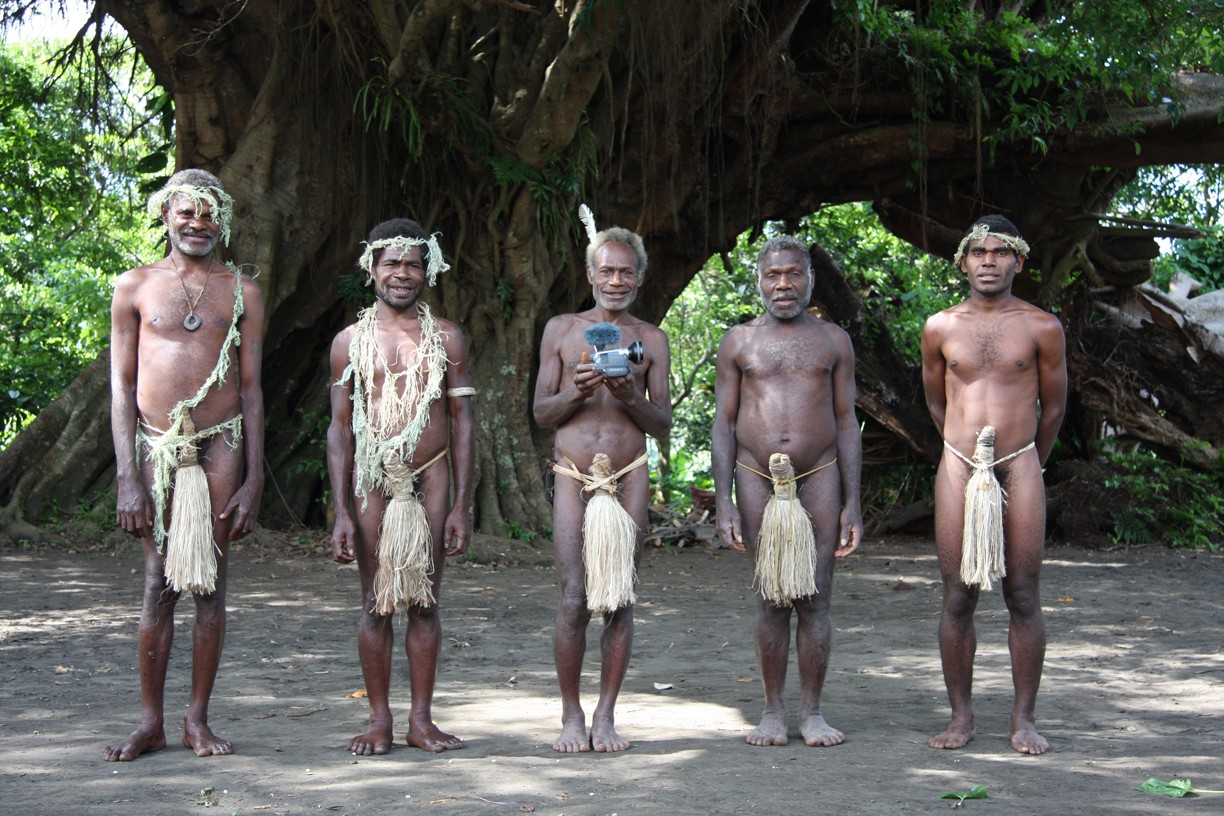
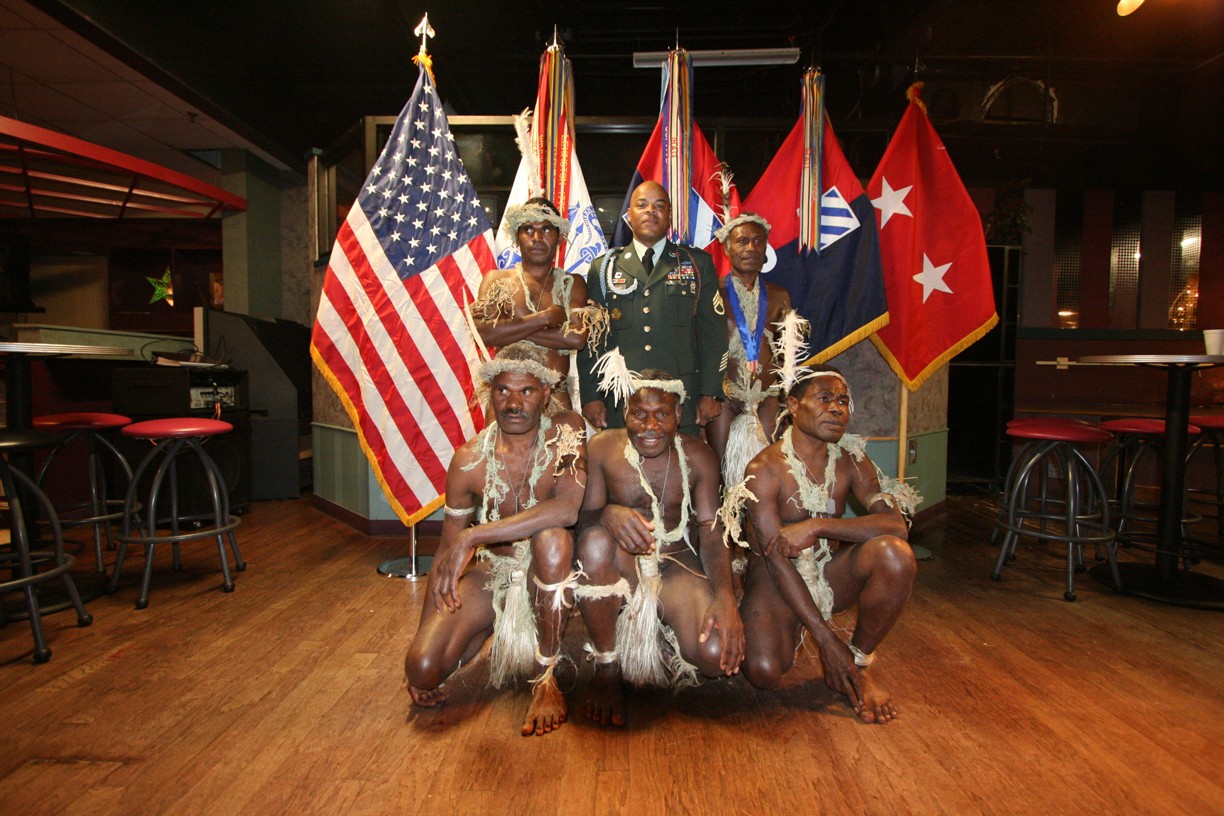
Social Sharing